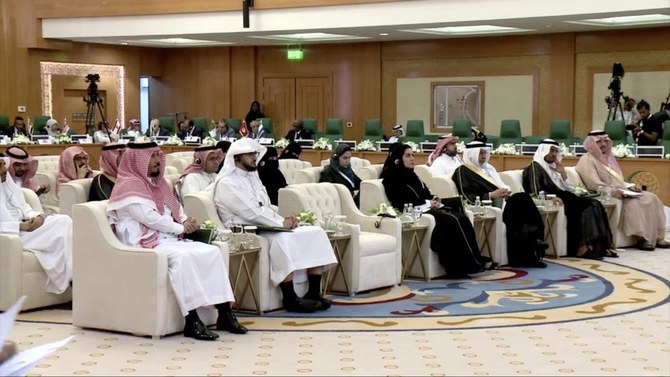JEDDAH: Addressing violations of human rights is top of the agenda for the 22nd regular session of the Organization of Islamic Cooperation’s Independent Permanent Human Rights Commission, which kicked off on Sunday and will continue for five days at the organization’s headquarters in Jeddah.
The session is being held under the theme “Reforms for a Better Future,” and is organized in cooperation with the Saudi Human Rights Commission.
Among those attending the opening day were Hala bint Mazyad Al-Tuwaijri, the commission’s president; Yalmaz Tunc, Turkiye’s minister of justice; Mohammed Lawal Sulaiman, IPHRC chairperson; and Noura Al-Rashoud, IPHRC executive director.
Representatives of member states, observer states, and experts from international and regional organizations were also present.
Yousef Al-Dobeay, OIC assistant secretary-general for political affairs, inaugurated the session with a speech that discussed “Elimination of Racial Discrimination: An Islamic and Human Rights Perspective.”
The address focused on ways to address the growing problem of discrimination, including contemporary aspects racial intolerance.
Al-Dobeay said that both the organization and the international community recognize the valuable contribution of the commission in promoting and protecting human rights independently, neutrally, and objectively.
“The commission has played a significant role in providing consistent recommendations to member states on various issues to ensure global human rights compliance and basic freedoms with Islamic values,” he said.
Al-Dobeay highlighted the severe consequences of racial discrimination on individuals and communities, saying that intolerance perpetuates social inequality, limits opportunities for social and employment progress, undermines mental and physical well-being, and can contribute to social conflicts and a weakened sense of belonging.
“The OIC, along with its member states, remains at the forefront of anti-racism efforts, actively contributing to setting standard measures that have helped combat this scourge,” he added.
Sulaiman told Arab News that the IPHRC “is set to tell the Muslim world that Islam also has great respect for human rights.”
He said that the session will discuss “the issue of racial discrimination, to show that as far as Islam is concerned, whether you are white or black, you are the same.”
Referring to the humanitarian catastrophe in Gaza, Sulaiman said: “We strongly condemn the actions taken against the Palestinians. Our daily prayers are dedicated to imploring Almighty Allah to safeguard them, and to provide protection against those responsible for inflicting such hardship.
“We are deeply distressed by the current events and have unequivocally expressed our disapproval. Our statement has been widely circulated and is endorsed by all members of the independent OIC. It is universally acknowledged within the OIC that the situation in Gaza is regrettable, and we urge the UN to take immediate measures to halt these distressing events.”
The opening session discussed Islamic and institutional standards for eliminating racial discrimination, while the second session focused on international efforts and strategies to combat racial discrimination and its contemporary aspects. A third session highlighted the role of media and national experiences in eliminating racial discrimination.
This was followed by an open discussion among commission members, OIC member states, observer states, and their national human rights institutions, along with the responses of the main speakers.
In the coming week, closed meetings will be held for working groups, including civil, political, economic, social, and cultural rights in the member states. There will also be discussions on human rights violations in Palestine, and in Jammu and Kashmir.
Additionally, regular meetings of its four working groups related to Palestine, women and children’s rights, Islamophobia and Muslim communities, and the right to development, will be held.
The 22nd session will conclude with decisions aimed at developing an action plan for the IPHRC, along with a workshop on “The Impact of Artificial Intelligence on Human Rights: Challenges and Opportunities” to generate recommendations for member states to improve their human rights policies and programs.






















